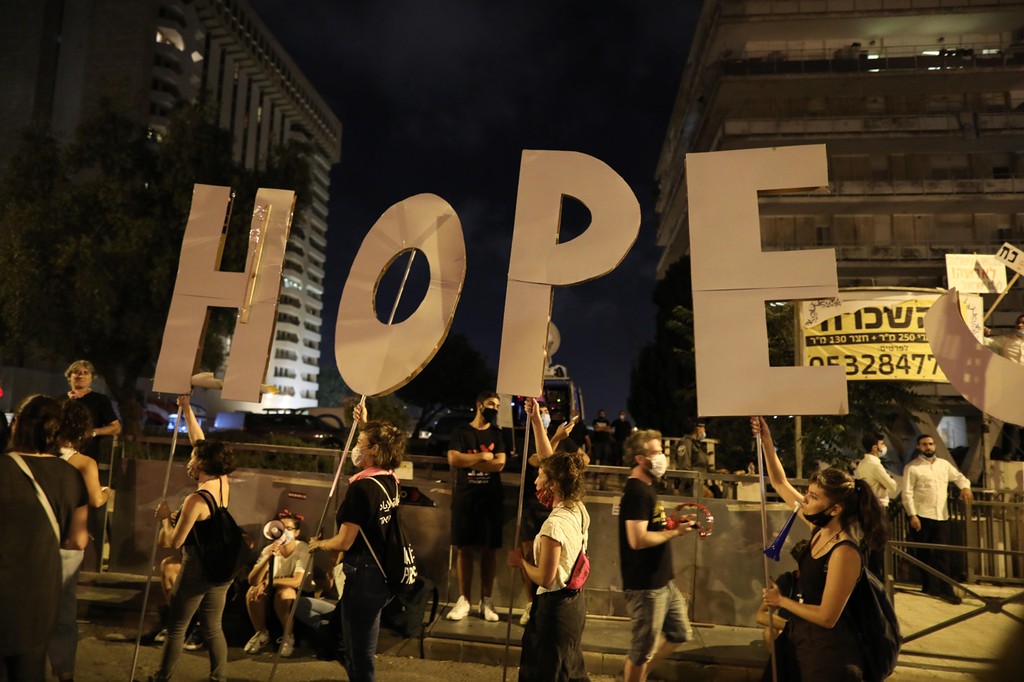In a summer of protests against Prime Minister Benjamin Netanyahu, the accusations of corruption and calls for him to resign could be accompanied by another familiar refrain: “I’ve never done this before.”
The boisterous rallies have brought out a new breed of first-time protesters — young, middle-class Israelis who have little history of political activity but feel that Netanyahu’s scandal-plagued rule and his handling of the coronavirus crisis have robbed them of their futures. It is a phenomenon that could have deep implications for the country’s leaders.
10 View gallery
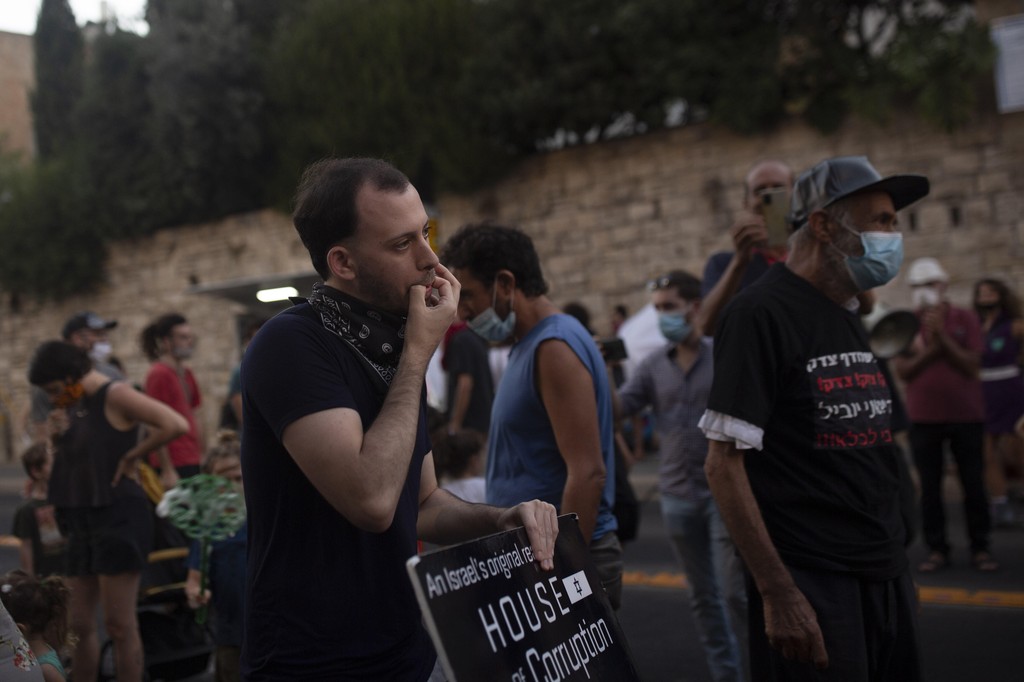

Shachar Oren, 25, whistles during a protest against Benjamin Netanyahu outside the prime minister's residence in Jerusalem
(Photo: AP)
“It’s not only about the COVID-19 and the government’s handling of the situation,” said Shachar Oren, a 25-year-old protester.
“It’s also about the people that cannot afford to eat and cannot afford to live. I am one of those people.”
Oren is among the thousands of people who gather outside Netanyahu’s official residence in Jerusalem several times a week, calling on the longtime leader to resign.
10 View gallery
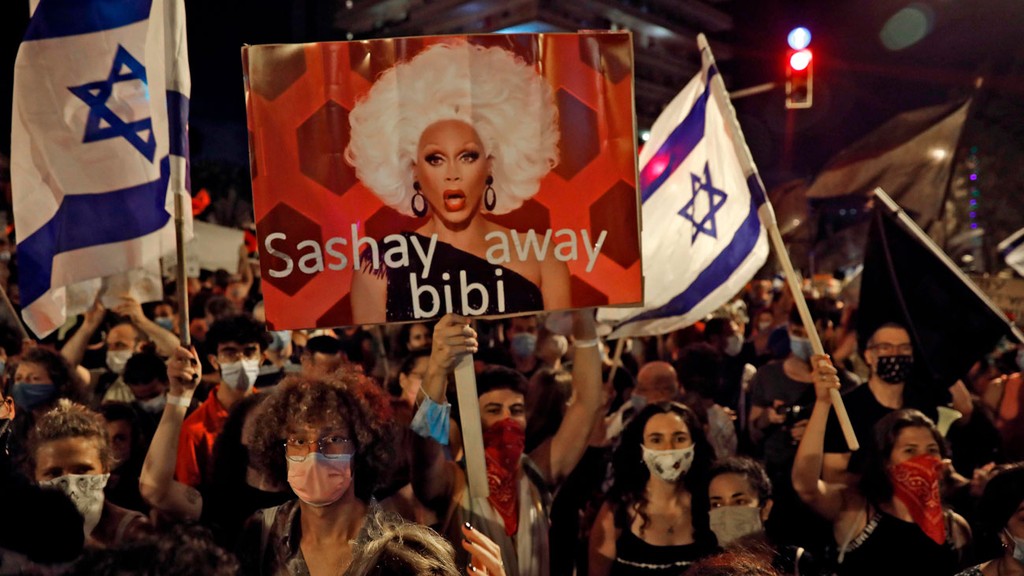

Protesters outside the prime minister's official residence in Jerusalem
(Photo: AFP)
The young demonstrators have delivered a boost of momentum to a movement of older, more established protesters who have been saying Netanyahu should step down when he is on trial for corruption charges.
The loose-knit movements have joined forces to portray Netanyahu as an out-of-touch leader, with the country’s most bloated government in history and seeking hundreds of thousands of dollars of tax benefits for himself at a time when the coronavirus outbreak is raging and unemployment has soared to over 20%.
Many of the young protesters have lost their jobs or seen their career prospects jeopardized. They have given the protests a carnival-like atmosphere, pounding on drums and dancing in the streets in colorful costumes while chanting vitriolic slogans against the prime minister.
Netanyahu has tried to dismiss the protesters as “leftists” or “anarchists.” Erel Segal, a commentator close to the prime minister, has called the gatherings “a Woodstock of hatred.”
Despite such claims, there are no signs that any opposition parties are organizing the gatherings. Politicians have been noticeably absent from most of the protests.
Israel has a long tradition of political protest, be it peace activists, West Bank settlers or ultra-Orthodox Jews. The new wave of protesters seems to be characterized by a broader, mainstream appeal.
10 View gallery
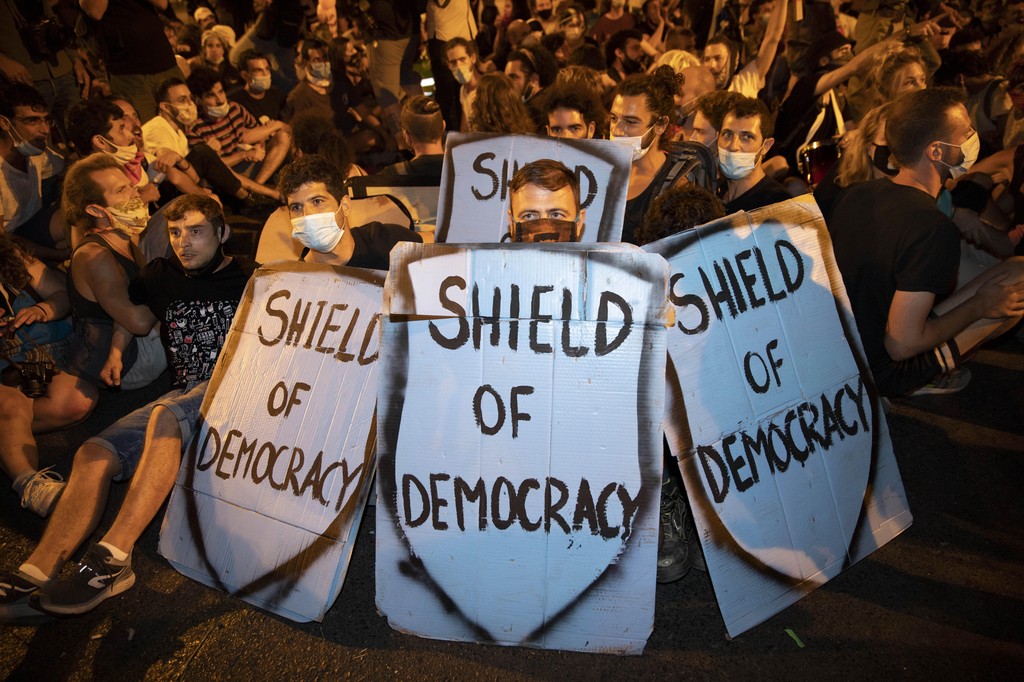

Protesters block a main road during a demonstration against Prime Minister Benjamin Netanyahu outside his residence in Jerusalem
(Photo: AP)
“The partisan issue is totally missing, and the party organizations are not present,” said Tamar Hermann, a researcher at the Israel Democracy Institute, a Jerusalem think tank and expert on protest movements.
Hermann said the protesters resemble many other protest movements around the world.
“They are mostly middle class,” she said. “And they were kicked out of work.”
10 View gallery
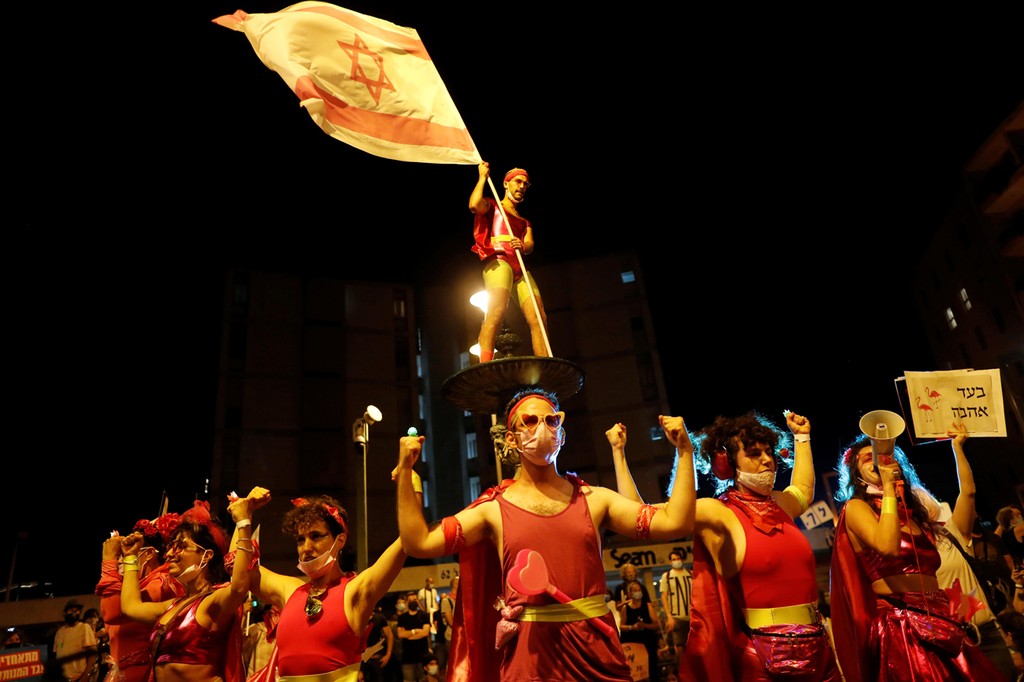

Protesters outside Benjamin Netanyahu's official residence in Jerusalem
(Photo: Reuters)
Oren, for instance, said he used to survive on a modest salary as a software analyst thanks to training he received in an IDF high-tech unit. Then he moved into tutoring — offering lessons in English, computers and chess to schoolchildren.
He said things weren’t easy, but he was “too busy surviving” to think about political activity. That changed when the coronavirus crisis began in March and Oren’s business crashed.
With unemployment soaring, Netanyahu and Blue & White leader Benny Gantz, formed a coalition with 34 cabinet ministers, the largest government in Israel’s history. Beyond the generous salaries, these ministers, many with vague titles, enjoy perks like drivers, security guards and office space, and can hand out jobs to cronies.
10 View gallery
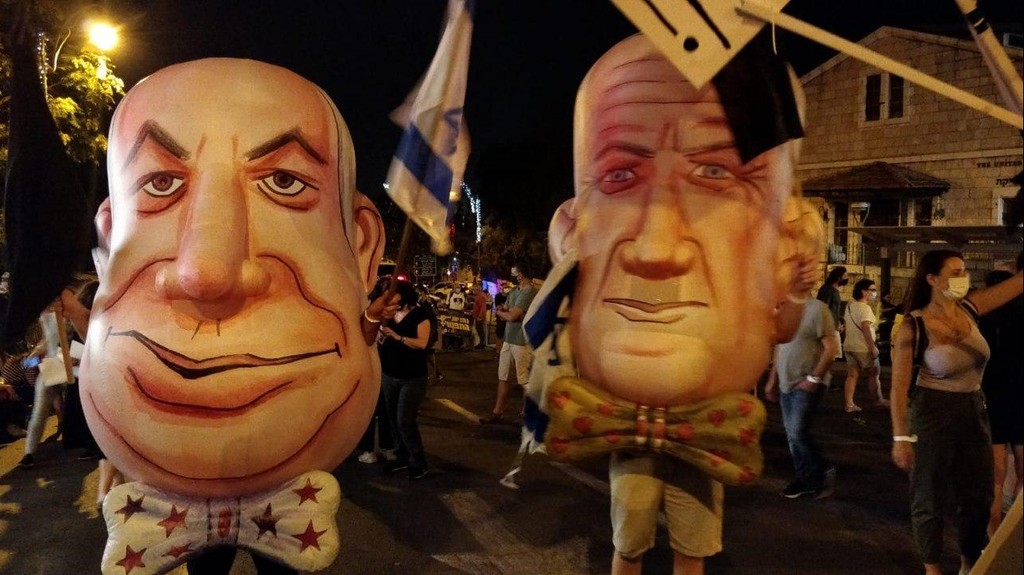

Anti-government protesters don masks of Benjamin Netanyahu and Benny Gantz outside the prime minister's Jerusalem residence
(Photo: The Black Flag movement)
Minister of Settlement Affairs Tzachi Hanegbi, a Netanyahu ally, dismissed reports that people were having trouble feeding their families as “BS.”
Oren said he became “furious,” and about two months ago, he went to his first protest against the nation’s leaders. “They are there because we gave them the power and want them to help us. And they’re not doing anything,” he explained.
Oren now treks to Jerusalem from his home in the city of Kfar Saba in central Israel, about an hour away, three times a week.
10 View gallery
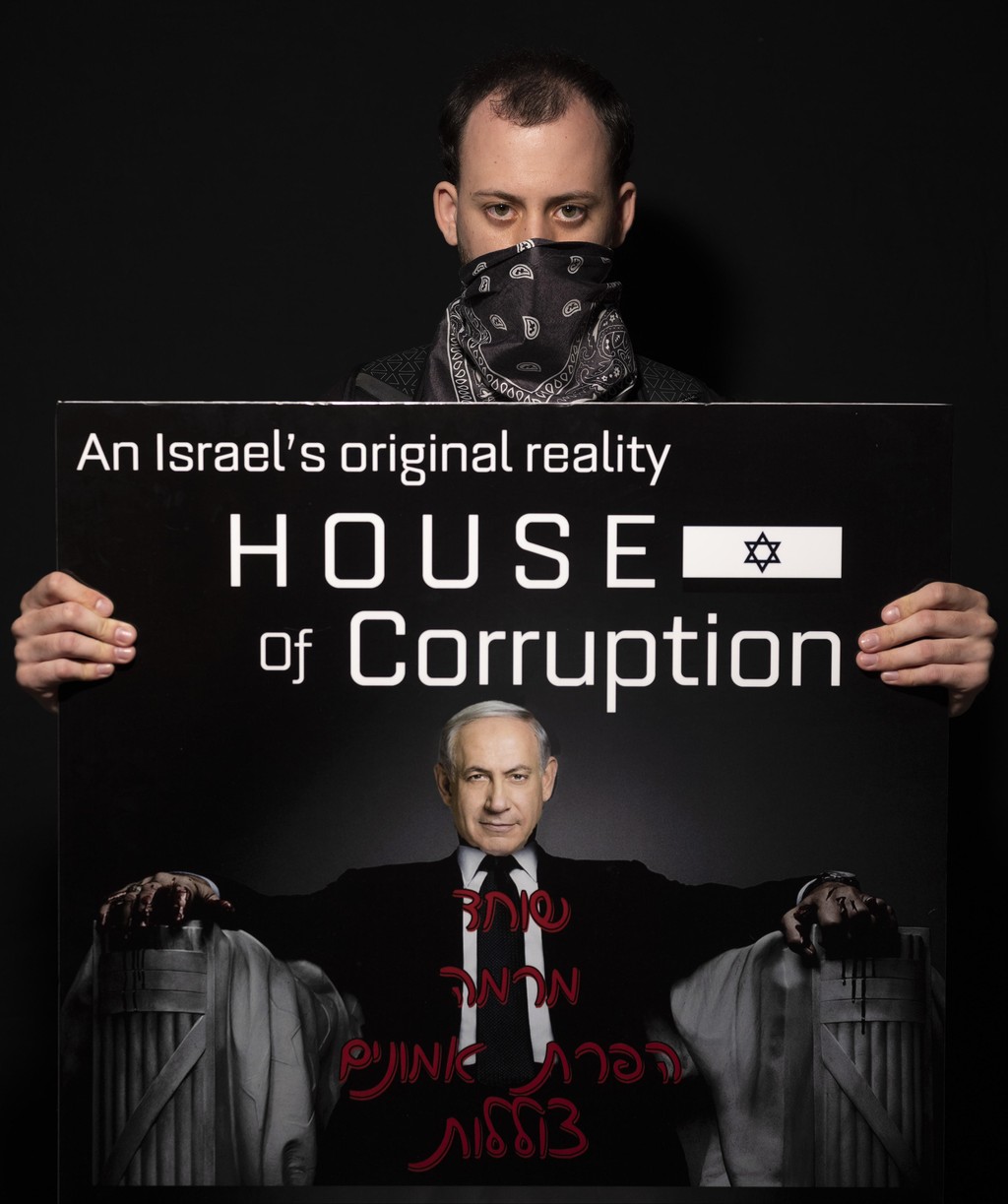

Shachar Oren at a protest against Benjamin Netanyahu outside his Jerusalem residence in Jerusalem. The sign reads: 'Bribery, Fraud, Breach of Trust, Submarine,' a reference to the prime minister's legal woes
(Photo: AP)
He is easily recognizable with his poster that says “House of Corruption,” depicting Netanyahu in a pose similar to the nefarious “House of Cards” character Frank Underwood.
Oren says he does not belong to any political party or any of the movements organizing the rallies, but that the diverse group of activists all want similar things.
“No to the corruption, the poverty, the detachment. We’re just saying enough,” he said.
10 View gallery
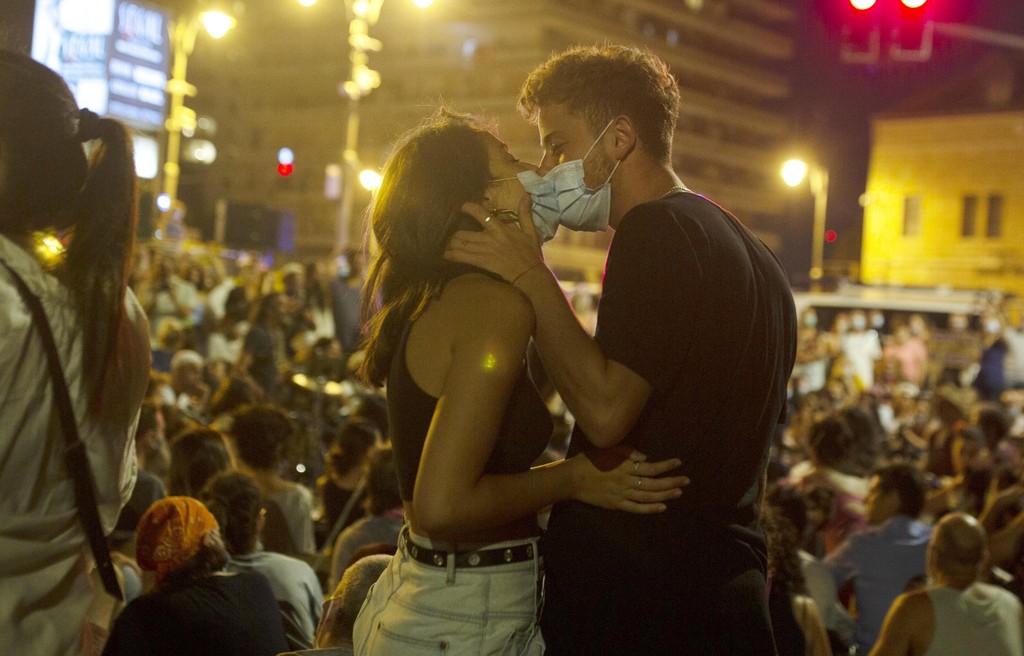

A couple wearing face masks embraces during a protest outside Benjamin Netanyahu's residence in Jerusalem
(Photo: AP)
University student Stav Piltz went through a similar evolution. Living in downtown Jerusalem near Netanyahu’s residence, she quickly noticed the demonstrations in her neighborhood when they began several months ago. She talked to protesters as well as local residents at the cafe where she waitressed before she was laid off.
She said she noticed a common theme. “They feel that something is very critical now in the political climate and no one is listening to the citizens and the pain we are experiencing,” she said.
But Piltz said the spark that drew her to protest was a national strike last month by the country’s social workers.
10 View gallery
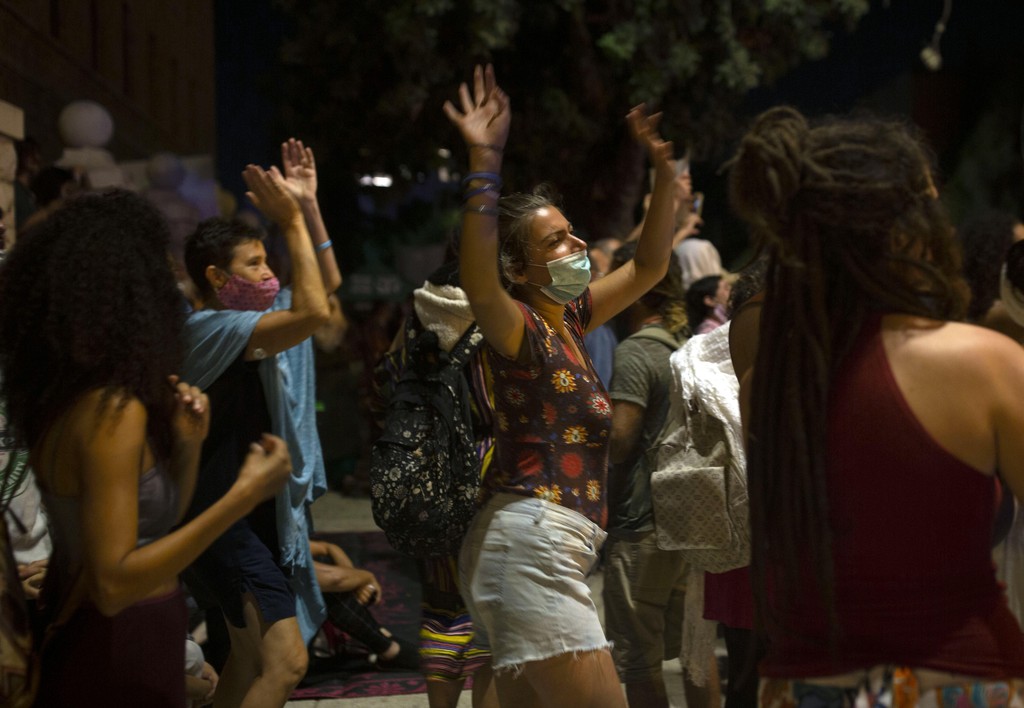

A woman dances during a protest against Benjamin Netanyahu's residence in Jerusalem
(Photo: AP)
Piltz, herself a social work student, said she has a history of social activism but has never been involved with party politics. The collection of women, coming from different religious, political, ethnic and racial backgrounds, was a powerful sight. “This is where I saw how much power we have when we are together,” she said.
The demonstrations, which have gained strength in recent weeks, are the largest sustained wave of public protests since hundreds of thousands of people took to the streets in 2011 to draw attention to the country’s high cost of living.
While those protests ultimately fizzled, two of their leaders entered parliament, and one, Itzik Shmuli, is now the country’s welfare minister.
10 View gallery
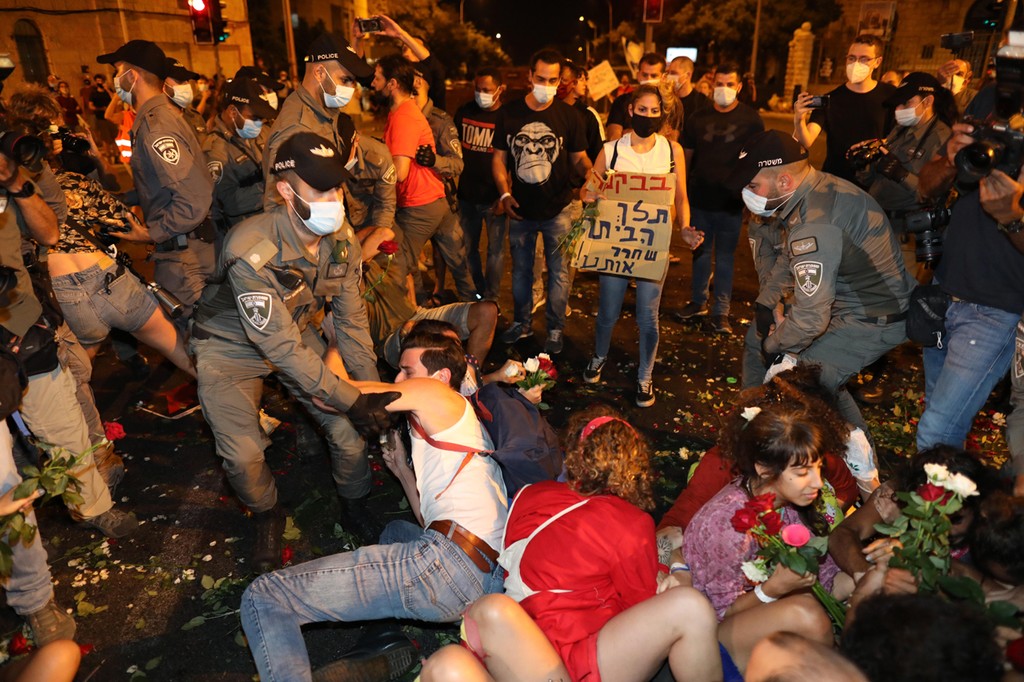

Police clash with protesters outside the prime minister's Jerusalem residence
(Photo: EPA)
Both Piltz and Oren said they are determined to keep up their activities in the long term.
“People have nothing to lose. So it’s very easy to go demonstrate these days, especially if you’re young and you see no future here,” Piltz said.
Hermann, the political analyst, said too many Israeli youths have been “politically ignorant” and that it is a “very good sign” for the country’s democracy that people are becoming involved.
The leaders, however, may not be so pleased to face a politically aware young generation.
“They are much more difficult to be controlled while they gain political views and confidence,” she said.


